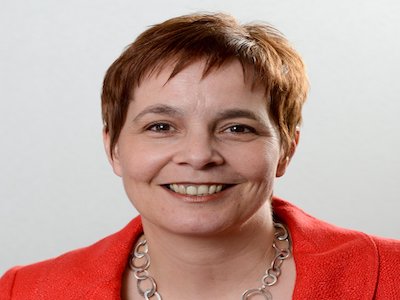At Leading Healthcare, we have launched our ‘CEO Series’ where we speak to NHS Trust CEOs about aspects of their leadership role within healthcare, to gain and share insights and learnings.
In the first of our CEO series, we spoke with Claire Molloy, CEO of Pennine Care NHS Foundation Trust.
We asked Claire of the challenges she has recently faced and what advice she would give to other CEOs and NHS colleagues.
How has your leadership has adapted?
I’ve always made an effort to get out and about and be as visible as possible, especially as our mental health and learning disability services are delivered across hundreds of different locations in Greater Manchester. As leaders, we can never underestimate the power of face-to-face.
As I can’t currently visit our teams, I’ve therefore really ramped up my use of other engagement channels, especially with frontline staff. So, as well as daily briefings, there are more phone calls, blogs, video messages, thank you emails and cards, and tweets. I was an infrequent tweeter, but am using Twitter a lot more especially as this has exploded in popularity with our staff since the pandemic.
What challenges have you faced?
I can’t do business in the same way and have found that I need to be even more structured and systematic.
It’s harder to access intelligence and information, for example, when you’re working remotely. It’s amazing how much you get told or pick up when you simply wander the corridor and pop into colleagues’ offices for an informal catch-up. So, I’m having to be more focussed and clearer about where I can source valuable information in order to make greatest contribution to our organisation.
What learnings have you acquired?
Letting go has been a big learning.
It’s natural to want to be at the heart of things and submerge yourself in ‘command and control’. But it’s important to trust in the structures and individuals that you put into place and let others crack on with it, without an overbearing amount of micro-management and governance.
I’ve deliberately not sat on any Gold Command calls and just kept to chairing our higher-level Response and Oversight Team sessions.
Yes, it been a bit anxiety inducing, and I want to be where all the action is, but I’m learning to be comfortable ‘letting go’ to very competent colleagues.
What advice would you give to other CEOs and teams?
It’s easy to assume that, because you’re in very regular contact with teams as part of the Covid-19 response, that you don’t also need one-on-one time with individuals. But it’s more important than ever to check in and see if individuals are OK.
It’s also essential to create time to recharge your own batteries, so that you have energy for others. One of the benefits of working from home is that I’ve been able to go for a lunchtime walk. I felt guilty at first, thinking I needed to sit in front of my computer or be on the phone the whole time. But a quick walk in the fresh air is a wonderful wellbeing boost.



